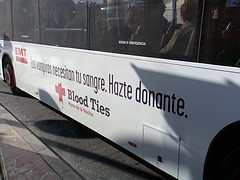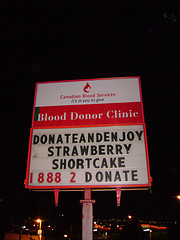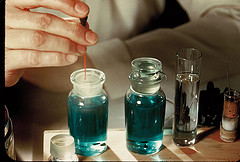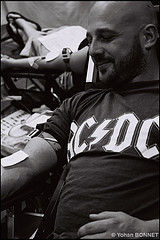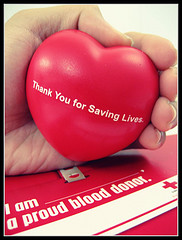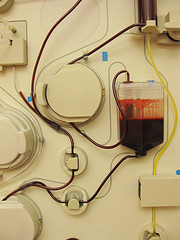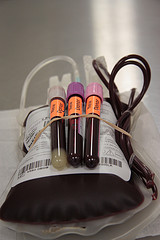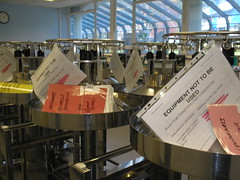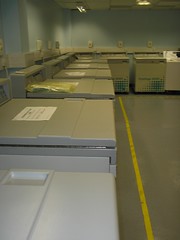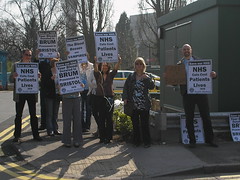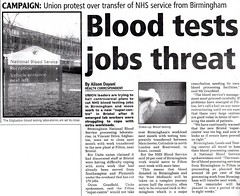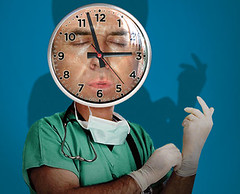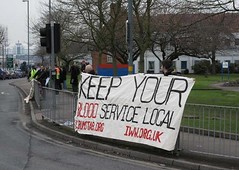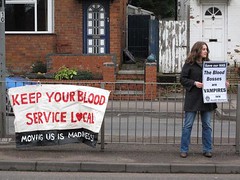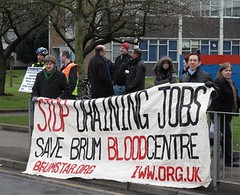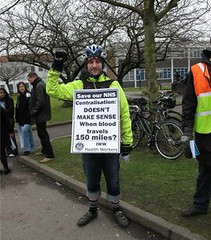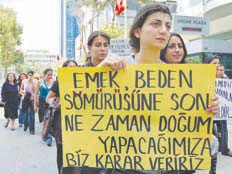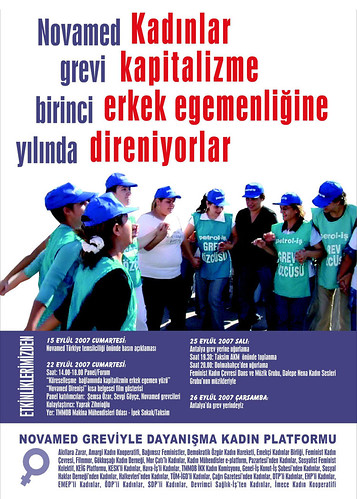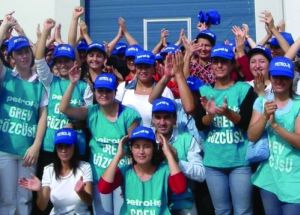In 2008 NHS Blood & transplant took on a new Director of Blood Donation, Andy Young. Here's Andy.

Andy's previous experience was as a top boss at the O2 Arena. Here's the O2 Arena.

This certainly rose a few eyebrows - and sneers - among the writers of this blog. It is a worrying sign when NHSBT management think that a great candidate for a director is one from the commercial sector, with no experience of working in the Blood Service or even the NHS. What's more the O2 Arena is hardly one of the all-time great successes of the business world...
All signs pointed to yet another clueless chief. Sighs and headshakes all round from staff.
At the start of June 2009 the bitter ramblings of even the most cynical staff members have been trumped - just one year after settling into his office, barely time to warm the chill off his leather seat, Andy Young is off to a new, shinier job. Andy obviously favours the 'jack of all trades' approach to his CV, deciding now to try his hand at (or should that be dip his toe into...) the 2012 Olympics. Not exactly the poster boy for continuity!
If Andy Young wants to really make an impact as part of 2012 he's probably best off stepping out from behind the scenes and joining the athletes in the long jump or the high jump.

It's bad enough to have directors brought in from the private sector, where they have honed their skills of brutality and cold-heartedness, and touted as the perfect choice to manage a service based on altruism. But at the very least those working in the upper echelons of NHSBT need to have a
passing interest in or concern for blood donation and transfusion. Andy Young's selfish desertion demonstrates that he had nothing of the sort. He must have been idly flicking through the job pages for a few months at least. Or was it ever anything more to him than a stop gap?
Andy Young welcomes prospective NHSBT director hopefuls via Hays management recruitment agency. Probably written by his secretary...
Anyone who felt the burning passion that some of us feel for the work we do would not be
able to simply walk out the door at the whiff of something bigger and better in the shallow way that he has done.
Money well spent, bosses?
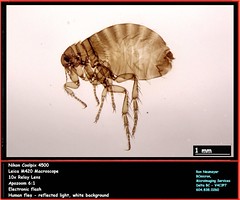
Labels: About the NBS, management strategy
